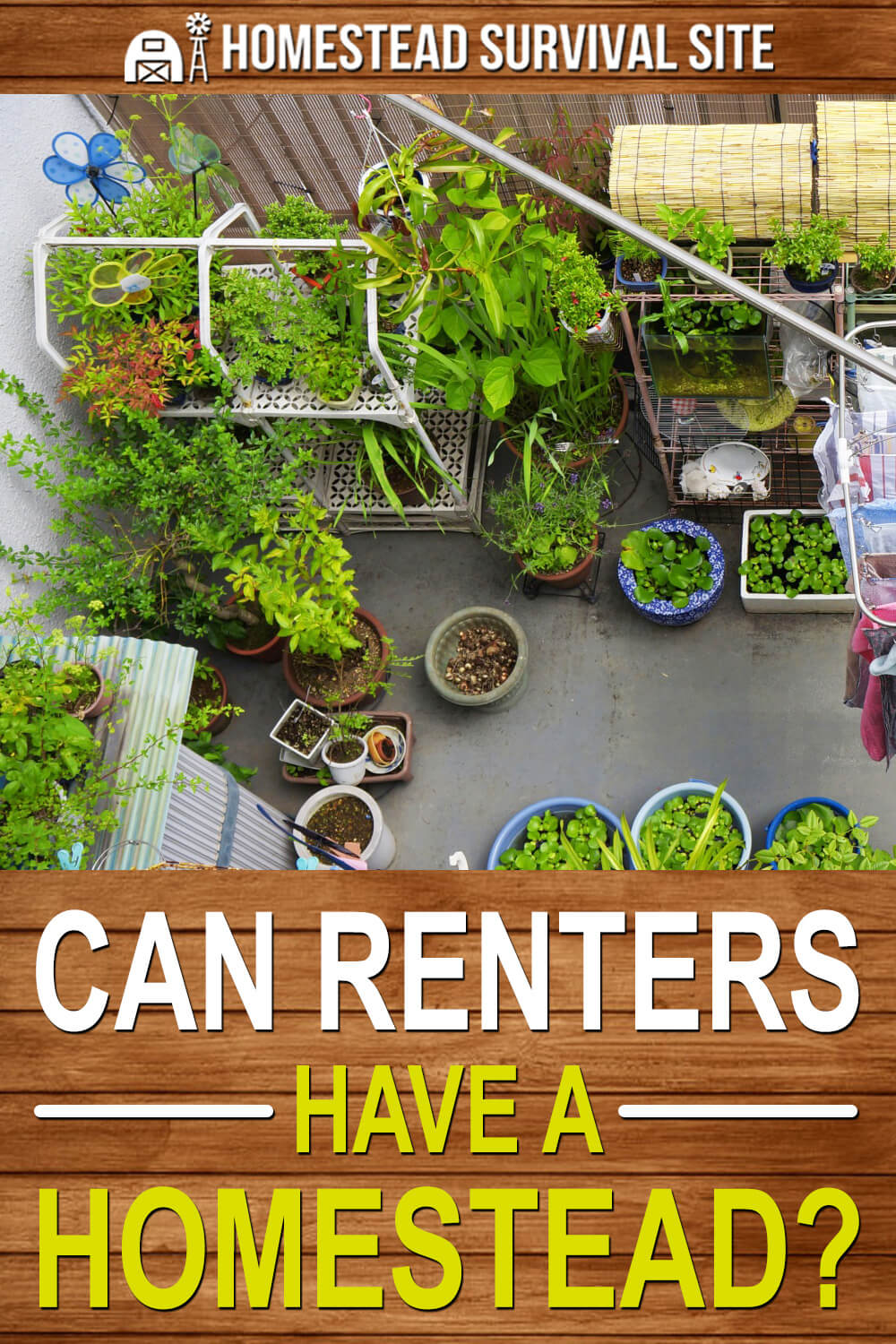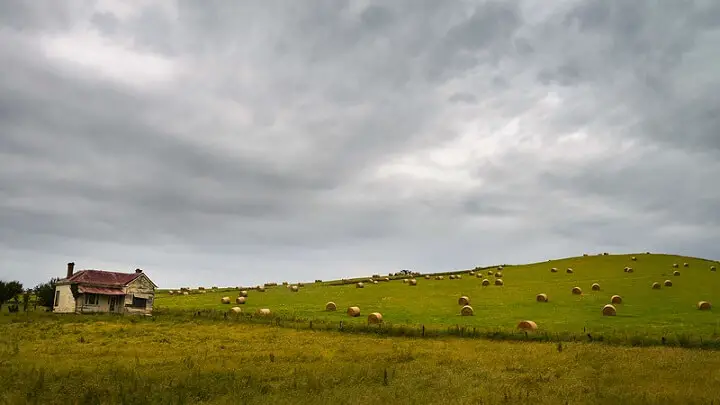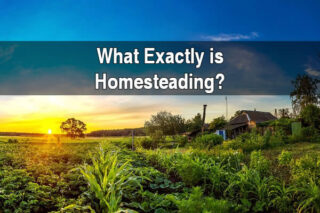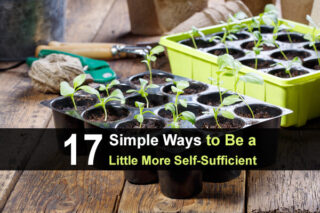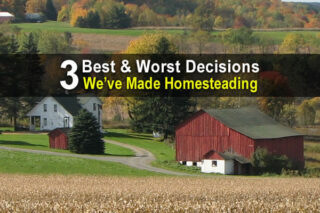Estimated reading time: 7 minutes
Many people dream of homesteading but can’t imagine coming up with the down payment on a suitable property. So, where does that leave aspiring homesteaders who rent? Is it possible to homestead on a rental property?
My answer to this question is a resounding “Yes.” Let’s explore the ins and outs of homesteading from a renter’s perspective.
Want to save this post for later? Click Here to Pin It On Pinterest!
What is a Homestead?
The word homestead is more complicated than it seems. The legal definition is of land and buildings lived in by an owner, but the dictionary definition includes any dwelling where a family makes its home.
The generally-accepted notion of a homestead is a home run for the purpose of providing a self-sustaining life to the homesteaders who live upon it. As opposed to a farm, a homestead is focused on providing for the residents, not selling on a larger scale.
Homesteading on a Rental Property
First and foremost, let’s consider that there are many types of rental properties. A huge apartment complex in a dense, urban environment is very different from a rural rental, but I believe it is possible to homestead out of either to varying degrees.
Apartment Homesteading
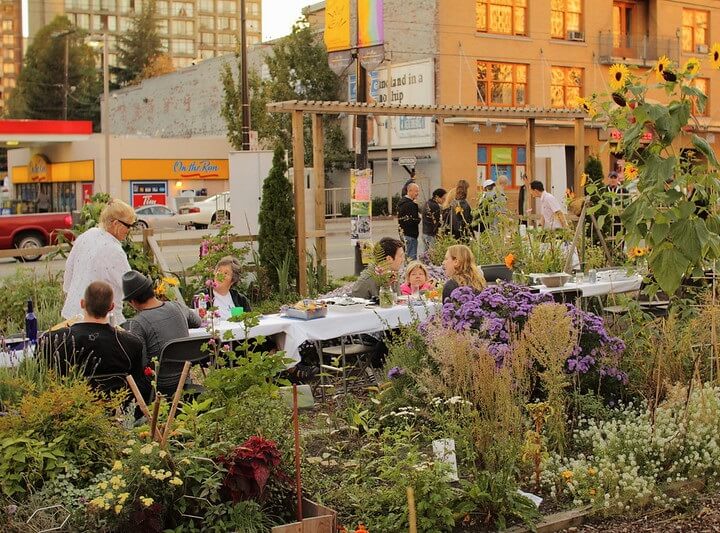
This is probably the most challenging way to homestead, but it's not impossible. The first order of business an apartment-dwelling homesteader must secure is access to growing space. A patio garden or indoor herb garden is a good place to start cultivating herbs and vegetables, but a community garden plot or a nearby friend with a yard they’re willing to share is a better bet.
Next, you should expand your definition of homesteading to include salvaged and foraged foods. Ask your local small grocers if they have bruised or ugly fruit and vegetables that you can save from the dumpster. Use these foods to practice pickling, drying, and canning.
Walk your neighborhood and survey the streets for fruit trees in yards. I can promise you that most fruit trees produce far more than a homeowner can use, and most folks are more than happy to share. Sweeten the deal by bringing them a pie or preserve made from some of their fruit.
Look into local farms and see if any of them offer workdays in exchange for produce, and if you don’t see any offered, call or write to farm owners and offer your labor in exchange for farm goods.
As a former farmer, I can tell you that most farmers gratefully accept offers like this. You may not be growing the food yourself, but you will learn a great deal and get some fresh produce out of the deal.
Rental House Homesteading
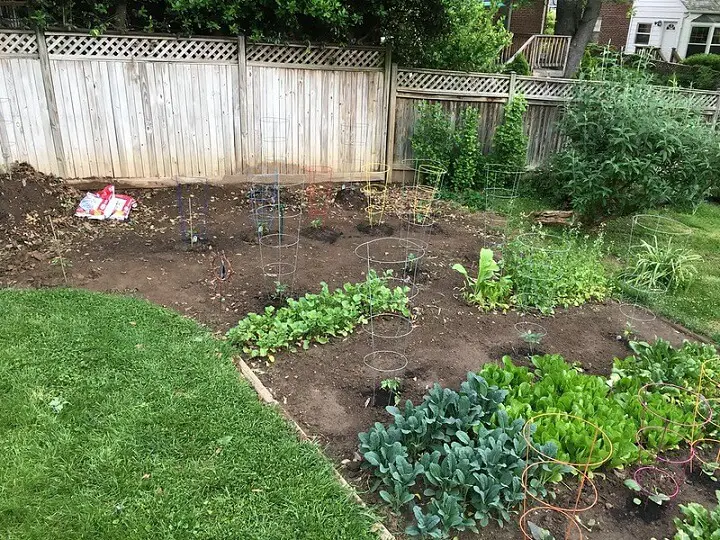
Not all rentals are created equal. If you are looking for a rental to homestead out of, look for properties that already have vegetable gardens or where the owners are open to you installing some. Hesitant landlords can sometimes be convinced with good-looking prefabricated raised beds that can be easily removed need be.
Backyard chickens are more popular than ever, and many landlords are open to tenants keeping chickens on site. I strongly advise against keeping ducks in a rental, as they will ruin the yard and your landlord will be very unhappy about it.
The main thing to make sure of is that you approve everything with the landlord beforehand. Make sure chickens are allowed, as some cities and neighborhoods have ordinances against them.
Rural Rental Homesteading
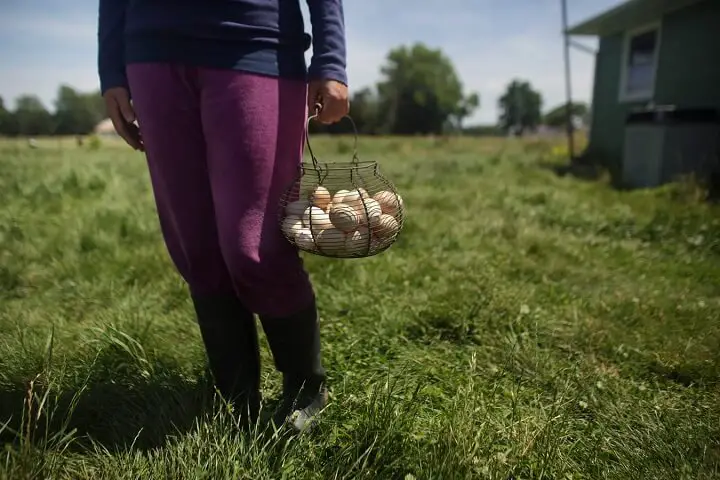
This may seem obvious, but if you can find a rural rental property, this is your absolute best bet for cutting your teeth on some serious homesteading. Like any rental, you have to be sure that everyone is on the same page about your activities on site.
But unlike a city property, a rural rental is more likely to offer larger areas for gardening, may already have fruit trees, chicken coops or animal pens. A country property might also come with a well for water, which is a huge benefit for anyone with a large garden.
If you’re ready to make a move to the country, sometimes you can find a property owner who aspired to farm and then changed their mind or a farm whose owners want people living on-site to help with rental money and labor. You might be surprised at the opportunities out there for energetic, resourceful people who want to homestead.
The advantages of finding a rural rental for homesteading are significant. They are often less expensive than city properties, allow you more freedom, and are usually more set up for homesteading than city rentals.
However, they are also not without challenges. Rural neighborhoods are more prone to flooding and are usually more vulnerable to damage from large storm systems. Small municipalities may lose electricity for longer periods than nearby cities, and the water management systems are more prone to contamination and pump failure.
On the other hand, all of these drawbacks of a rural rental help to prepare you for homesteading on your own property one day. The major issues rural renters may come up against are the increased time spent commuting to city jobs and the insecurity of not owning your property.
I’ve seen many a rural renter invest heavily in homestead tools and equipment only to be booted out by a landlord after only a year or so. It is also very tempting to accumulate lots of stuff if you have a large rental property–salvaged building materials and equipment that you collect just in case can become a major liability if you need to make a sudden move.
The Spirit of Homesteading
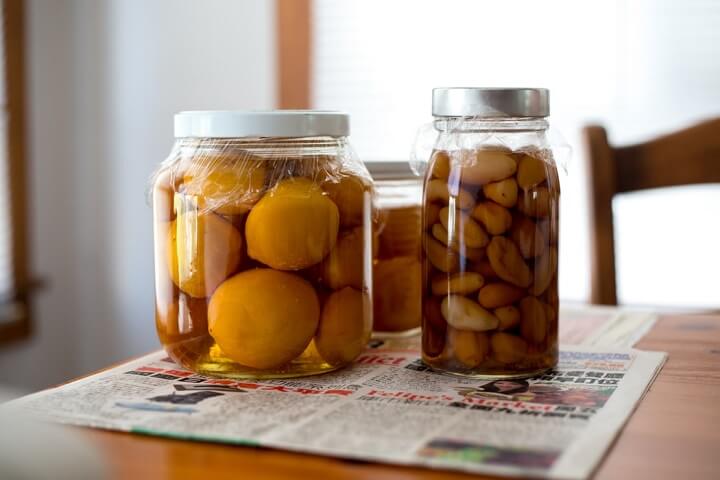
Homesteading in a rental is a low-investment way to test drive a homesteading lifestyle without having to fully commit. Starting off in a small space like an apartment gives you the most freedom to experiment with creative ways of sourcing and preserving food.
Using a rental house in the city is a perfect launchpad for discovering methods of gardening and conservation on a small scale. And renting a rural property is the gateway drug to full-time homesteading.
If you truly want to homestead, start where you are and build your skills from there. Where there is a will there is a way; homesteading is as much a state of mind as it is anything else.
Like this post? Don't Forget to Pin It On Pinterest!



